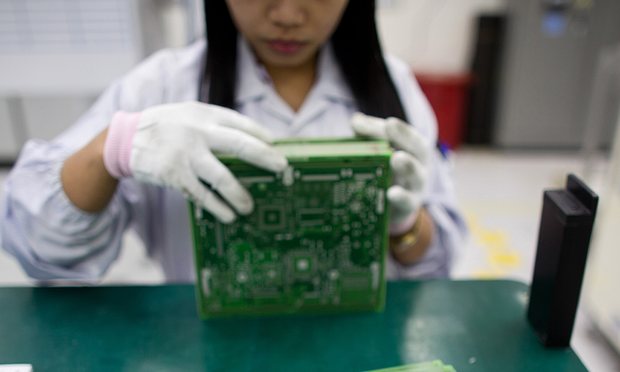
Kate Hodal and Annie Kelly
Monday 21 November 2016 05.00 GMT / The Guardian
When it comes to electronics, what Malaysia makes matters. According to a 2014 study “virtually every device on the market today” – from tablets to laser printers to microwaves – is likely to have involved Malaysia in some way.
Once a colonial outpost, the country has radically transformed itself into a key player in the global manufacture and trade of advanced electronics. The south-east Asian nation hosts more than 5,000 international businesses from 40 countries, thanks to 500 nationwide industrial estates and “free zones” for trade.
Malaysia has rebranded itself as a “heaven for foreign companies”, describing itself as “cost-competitive”, “pro-business” and “market-oriented”.
But these company-friendly policies come with a major human cost, said Phil Robertson, deputy director of Human Rights Watch in Asia.
“Many of those working on the factory lines are migrant workers brought to the country on the promise of decent work but who are facing a system of exploitation that has deepened and expanded over the years,” he said.
“While a lot of this might look like normal work, when you consider the position that many of these workers are in, where they have paid extortionate fees for their jobs, have had to work as long as three years to pay off that debt, and have no access to personal identification documents or any control over terms or conditions of work, then this isn’t decent work – it is akin to modern slavery.”
Migrant workers are the fuel driving Malaysia’s electronics boom. Campaigners believe that as much as 40% of Malaysia’s workforce is made up of migrant workers, up to a third of whom are undocumented.
CLICK HERE TO READ FULL ARTICLE